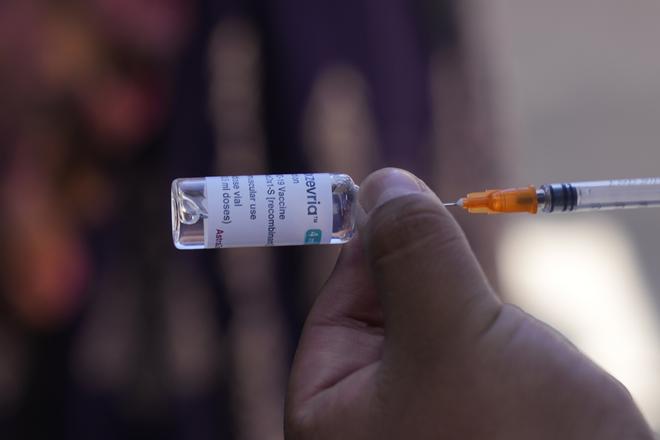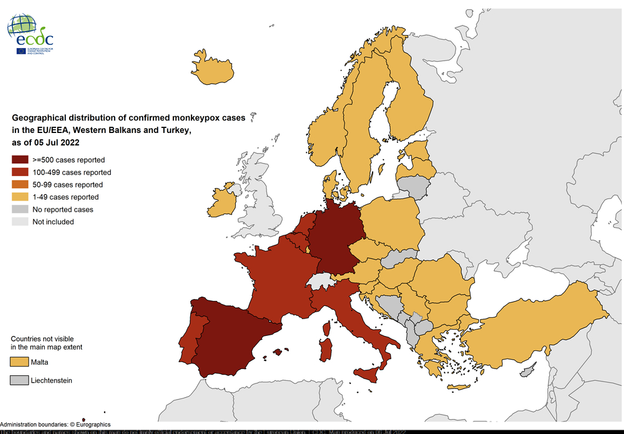Slovakia has confirmed its first monkeypox case - almost two months after the first infections in the current outbreak were identified in Europe.
The Public Health Authority said on July 7 that a person infected with the virus is currently hospitalised and isolated. Officials declined to provide any details about the patient, but said they had probably contracted the virus abroad.
Employees of a regional branch of the Public Health Authority have traced all relevant contacts of the patient and told them to self-isolate in case they notice monkeypox symptoms, which include fever, fatigue, swollen lymph nodes and a rash.
The Korzár website later reported that the hospitalised patient is a man who has recently visited Spain. The man was admitted to hospital in Košice.
Monkeypox is similar to smallpox, but is less severe. Symptoms normally last up to a month and disappear without treatment, according to the European Medicines Agency.
The monkeypox outbreak in Europe began in mid-May, and to date, almost 6,000 cases have been confirmed in 33 European countries.
Vaccines
The Slovak government announced in early June it would purchase 2,000 monkeypox vaccines. At that time, the Public Health Authority said it did not expect a large-scale monkeypox epidemic.
There is one antiviral treatment against monkeypox, Tecovirimat, available and authorised in the EU.
Reviews of Imvanex, a vaccine used and authorised in the EU to prevent smallpox which could also be used as a vaccine against monkeypox, began a few weeks ago.
However, there are limited supplies of Imvanex in the EU and the European Medicines Agency has recommended the use of Jynneos, a vaccine authorised in the USA to prevent smallpox and monkeypox. The EU has purchased 110,000 doses of this vaccine.
“Their delivery to member states with the highest number of cases is foreseen to start in the coming days,” the medicines agency said on June 27.



